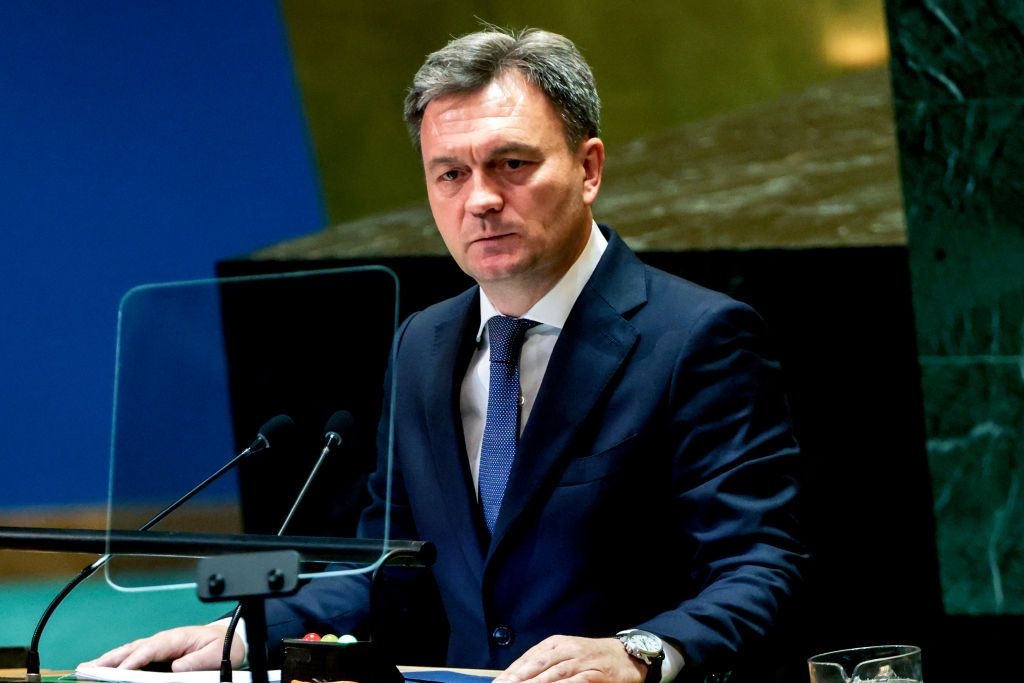Russia’s decision to cut off gas supplies to Moldova has created a security crisis in the region, particularly affecting the breakaway region of Transnistria. Moldovan Prime Minister Dorin Recean expressed concern over Russia’s actions, viewing it as an attempt to destabilize Moldova and bring pro-Russian forces back to power. The Russian state energy company Gazprom stopped gas deliveries to Moldova on Jan. 1, leading to widespread power outages in Transnistria, which has been occupied by Russian troops since the early 1990s. While the rest of Moldova has shifted to European energy supplies, Transnistria remains heavily reliant on Russian gas, putting the region at risk of industrial collapse.
The suspension of gas supplies from Gazprom has left thousands of households in Moldova without gas and many more with reduced supply. The Transnistrian administration has initiated rolling blackouts to cope with the crisis. Despite Moldova offering to help Transnistria procure alternative gas sources from the European market, authorities in the region have refused, believing that Gazprom will resume deliveries. The decision to cut off gas was allegedly due to outstanding debts, although Chisinau disputes this claim. Additionally, a transit deal allowing Russian gas to pass through Ukraine expired on Jan. 1, but Gazprom did not attribute the suspension to transit issues. Moldova has accused Russia of attempting to destabilize the country in order to exert control over it.
Facing a potentially harsh winter, Moldova has declared a state of emergency in anticipation of an energy crisis in 2025, exacerbated by the end of Ukraine’s role in transporting Russian gas through its territory. This situation will have a significant impact on Moldova and particularly on Transnistria, which will suffer the most from the gas supply cut-off. The region is already facing power outages and industrial risks due to its heavy dependence on Russian gas. Moldova’s efforts to assist Transnistria in finding alternative gas sources from Europe have been rejected, as authorities there believe Gazprom will resume deliveries. Moldova has been critical of Russia’s actions, accusing Moscow of destabilizing the country to advance its own interests.
The unfolding energy crisis in Moldova has raised concerns about the country’s security and stability, with the situation in Transnistria becoming increasingly precarious. The reliance on Russian gas has left Moldova vulnerable to disruptions in supply, especially as Gazprom has halted deliveries citing outstanding debts. Moldova’s willingness to support Transnistria in finding alternative gas sources demonstrates its commitment to mitigating the crisis, but the refusal of authorities in the breakaway region indicates a deeper political motive at play. The regional dynamics involving Russia’s influence and Moldova’s efforts to resist external pressure underscore the complexities of the situation and the challenges faced in navigating energy security issues.
The ongoing energy crisis in Moldova highlights the broader geopolitical tensions in the region, as Russia’s actions are seen as part of a larger strategy to assert its influence and control over neighboring countries. The gas supply cut-off to Moldova and Transnistria not only impacts the immediate energy needs of the population but also symbolizes a broader struggle for power and dominance in the region. Moldova’s response to the crisis, including declaring a state of emergency and offering assistance to Transnistria, reflects the country’s efforts to protect its sovereignty and resist external interference. The situation underscores the vulnerabilities faced by smaller countries caught in the crosshairs of larger geopolitical conflicts, as they seek to navigate complex power dynamics and safeguard their national interests.
As Moldova grapples with the energy crisis and the implications of Russia’s actions, the country’s leadership faces significant challenges in maintaining stability and security. The gas supply cut-off has already had a substantial impact on Transnistria, leading to power outages and industrial risks that could further exacerbate the region’s economic and social challenges. Moldova’s efforts to address the crisis and support affected regions demonstrate its commitment to protecting its territorial integrity and sovereignty in the face of external pressures. The broader implications of the energy crisis on regional security and stability underscore the need for proactive measures to address the underlying issues and prevent further escalation of tensions in the region.


